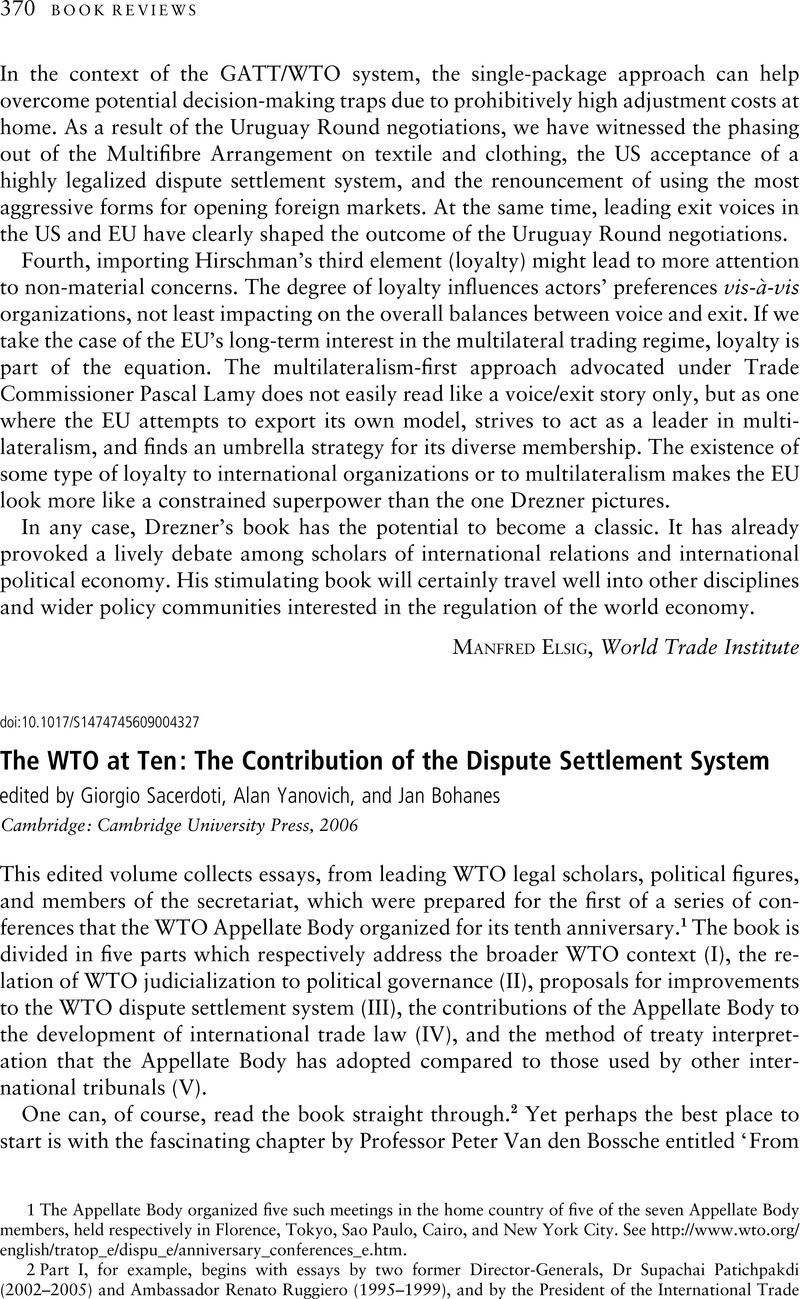No CrossRef data available.
Article contents
The WTO at Ten: The Contribution of the Dispute Settlement System edited by Giorgio Sacerdoti, Alan Yanovich, and Jan Bohanes Cambridge: Cambridge University Press, 2006
Published online by Cambridge University Press: 15 April 2009
Abstract

- Type
- Book Review
- Information
- Copyright
- Copyright © Cambridge University Press 2009
References
1 The Appellate Body organized five such meetings in the home country of five of the seven Appellate Body members, held respectively in Florence, Tokyo, Sao Paulo, Cairo, and New York City. See http://www.wto.org/english/tratop_e/dispu_e/anniversary_conferences_e.htm.
2 Part I, for example, begins with essays by two former Director-Generals, Dr Supachai Patichpakdi (2002–2005) and Ambassador Renato Ruggiero (1995–1999), and by the President of the International Trade Committee of the European Parliament, Enrique Baron Crespi, concerning the WTO in broader political context and the challenges that the organization will face, and it concludes with interesting reflections of Appellate Body member Giorgio Sacerdoti regarding the WTO legal system in political context.
3 The formal name of the DSU is the Understanding on Rules and Procedures Governing the Settlement of Disputes, but it is commonly known as the Dispute Settlement Understanding.
4 The DSU reversed the ‘consensus rule’ for the adoption of panel reports, so that, under the WTO, the adoption of panel reports can only be blocked by consensus of all WTO members, including the prevailing party. In contrast, under the GATT, panel reports were only adopted by consensus of all GATT Contracting Parties, including the losing party. As a result, panel reports are now automatically adopted unless the parties settle the dispute following the issuance to them of a confidential ‘interim report’. The use of ‘interim reports’ creates a potential (but relatively weak) political check, subject to the prevailing party agreeing to settle the dispute before the report is adopted.


